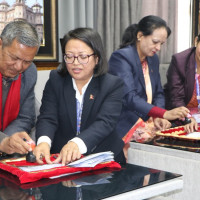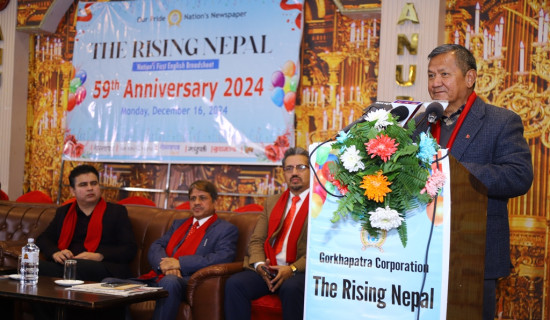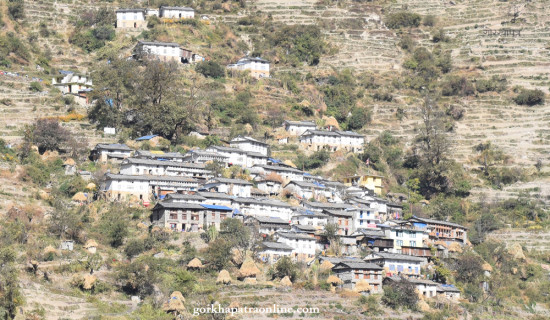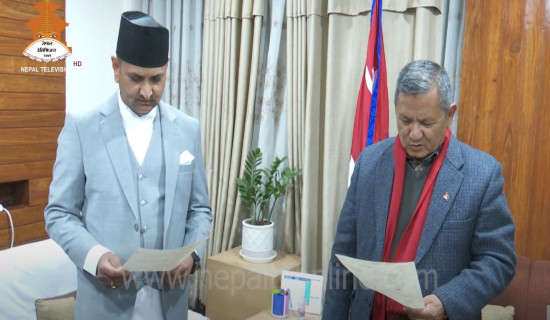- Tuesday, 17 December 2024
Lumbini electric buses start running
By Shyam Shankar Pandey
Lumbini, Sept. 29: Following instructions from Minister for Home Affairs Bal Krishna Khand, the electric vehicles that had remained idle in Lumbini for years have finally come into operation.
The Asian Development Bank (ADB) had provided the buses to Lumbini Development Trust (LDT) three years ago to serve tourists coming to visit the birthplace of Gautam Buddha. However, they had remained in parking gathering dust until this Tuesday when, amid a programme organised in Bhairahawa on the occasion of World Tourism Day on Tuesday, Minister Khand instructed the concerned bodies to bring the buses into operation without delay.
This galvanised the authorities and on Wednesday, LDT, local levels, transportation entrepreneurs, industrialists and tourism businesses held a meeting under the chairmanship of Chief District Officer Bharatmani Pandey and decided to bring five buses into service from Thursday. Pandey informed that the buses would ply different routes and the drivers would be provided by the police, the Armed Police Force and the army.
Additionally, he shared that the domestic and foreign tourists riding the buses would not be charged a fare. “We hope this will help people travelling for the festivals,” he said.
Dhundi Raj Bhattarai, treasurer of LDT, informed that the buses would run on the Belahiya-Gautam Buddha International Airport (GBIA)-Lumbini, Ramgram-Belahiya-Lumbini, Butwal-Bhairahawa-Lumbini and Lumbini-Tilaurakot routes till Tihar.
In addition to the five buses, ADB had also provided 14 vans to LDT. The Trust is also looking to bring these vans into trial service from Saturday. “The Trust decided on Tuesday to run the vehicles on the road for five days during Dashain to test their equipment
and the charging stations. We have not yet obtained the required number plates but made the decision
to take the vehicles out on the road for the convenience of the passengers,”
he said.
The buses and the vans are collectively worth Rs. 120 million.
Also, a solar plant was built and charging stations set up two years ago to charge the electric vehicles. However, because the buses and vans were not in operation, the nearly Rs. 5.4 million worth of electricity produced by the plant, which itself was built at a cost of Rs. 140 million, had been going to waste.
ADB provided the vehicles to enable Nepal to take the tourists arriving at GBIA around the Buddhist Circuit while minimising emissions and damage to the environment around the World Heritage Site. ADB had also provided loan assistance for GBIA’s construction.

.jpg)













-original-thumb.jpg)

